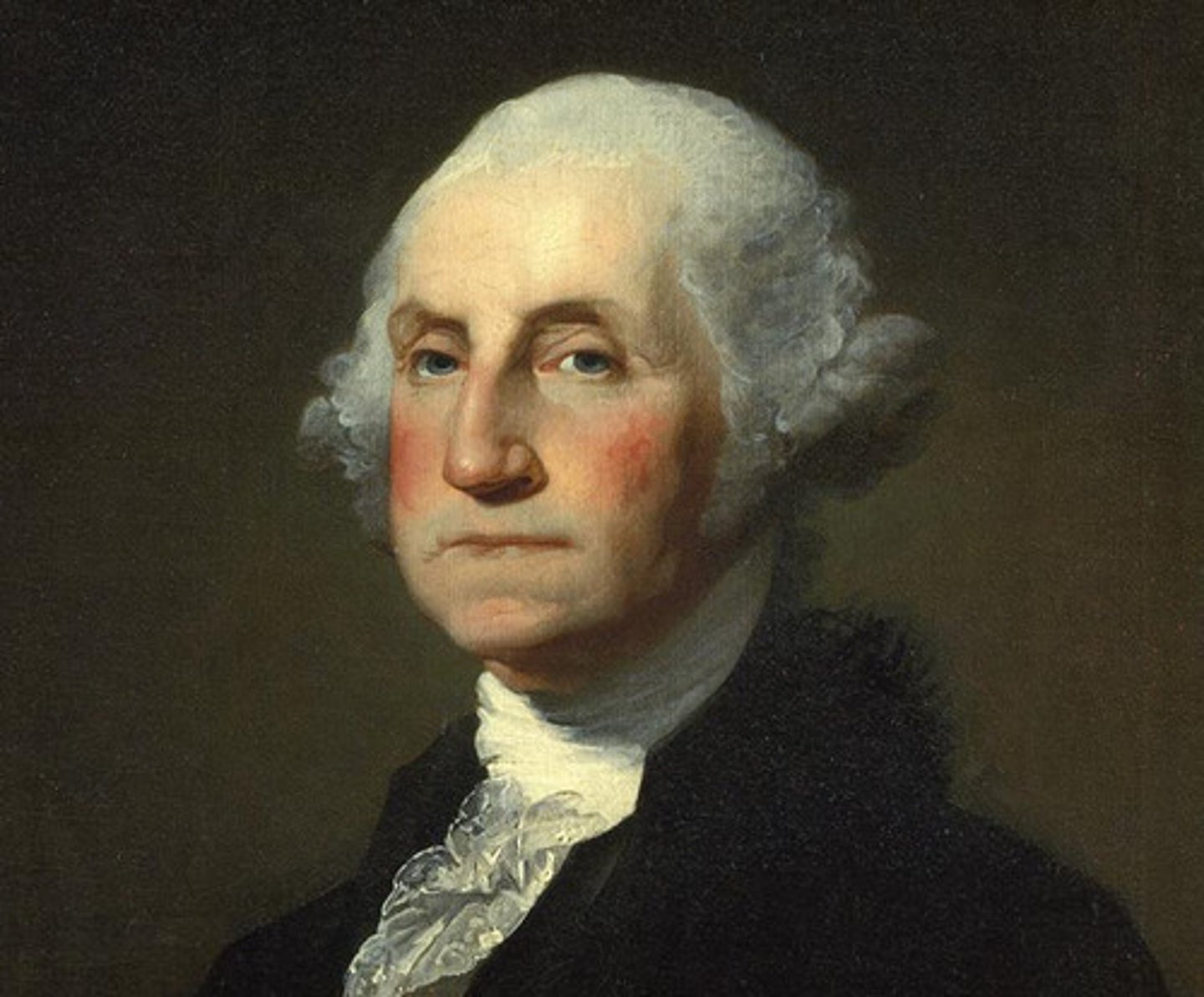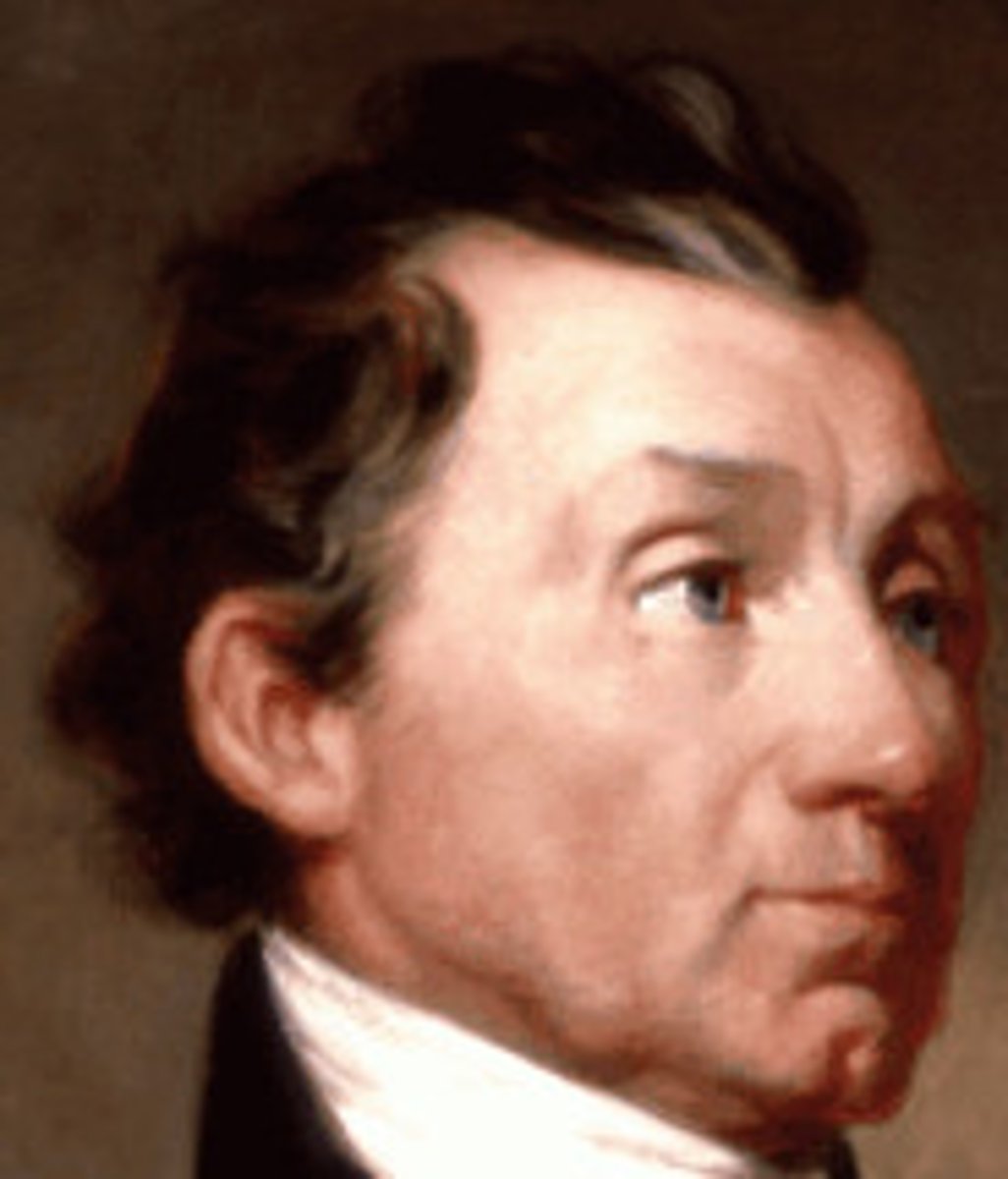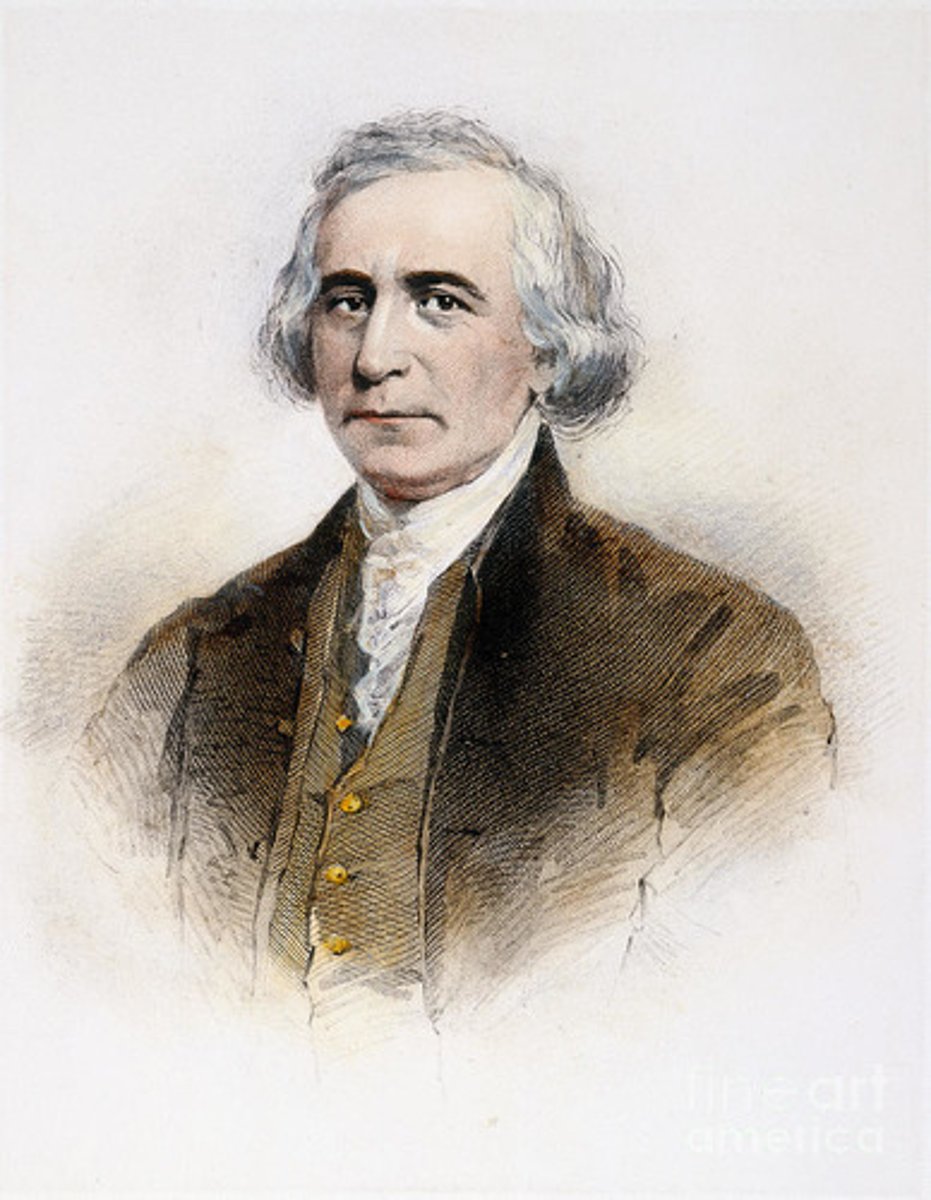UIL Social Studies 24-25: A Magnificent Catastrophe; Chapter 2
1/49
There's no tags or description
Looks like no tags are added yet.
Name | Mastery | Learn | Test | Matching | Spaced |
|---|
No study sessions yet.
50 Terms
Which politcal figure in early American history said that he hated partisanship and believed that all elected officials could raise above factional self-interest and unite on fundamental issues, yet he readily took sides in party clashes, which ussually put him in the company of Federalists?
George Washington

What location did Thomas Jefferson view as a haven for High Federalists within the Democratic-Republican stronghold of Virginia?
Mt. Vernon, George Washington's estate
Why did George Washington begin to distrust Thomas Jefferson towards the end of his first term in office?
Jefferson wrote a letter alluding to Washington going over to the Federalist side.
In the Election of 1796, what schemes did Alexander Hamilton attempt?
Hamilton tried to manipulate the Electoral College system to get Thomas Pinckney as the Federalist Party president instead.
Why did the Founding Father's view the Electoral College as a positive influence on American politics?
Well-qualified electors would select, ideally, the best-qualified candidates for President and Vice-President, which would prevent the formation of political parties and coordinated partisan voting.
What were the Federalist and Democratic-Republican Party's respective plans for candidates in the Election of 1796?
- Federalists had John Adams for President and South Carolinian Thomas Pinckney for Vice President
- Democratic-Republicans had Thomas Jefferson for President and four candidates for VP.
How did Hamilton think his scheme to replace John Adams with Thomas Pinckney would work?
Thomas Pinckney would get votes from the dependable Federalist support in Northern states and hopefully get enough votes from South Carolina and other southern states.
In a letter written in June 1799, who did Federalist Connecticut Governor John Trumbull try to persuade to run for Federalist president in 1800?
George Washington
On a personal level, why were a lot of New England Federalists worried about a potential Jefferson presidency?
They distrusted Jefferson's alleged Deism and anti-clericalism.
Shortly before his death, who did George Washington learn would become the next governor of Virginia and place the state's Electoral College votes securely behind the Democratic-Republcans in 1800?
James Monroe

What derogatory political party name did Federalists hurl at Democratic-Republicans to emphasize their potential for radical policies?
Jacobins (the name of the party leading the Reign of Terror in the French Revolution)
Why was there bad blood between George Washington and James Monroe?
James Monroe, as a Senator from Virginia, led calls against Britain and the divisive Jay's Treaty. He also briefly served as ambassador to France to smooth over the reaction to Jay's Treaty. Monroe was then subsequently replaced by Charles Cotesworth Pinckney.
What 18th century medical treatment did doctors prescribe to George Washington as he lay dying with contracted epiglottitis from a bacterial infection in his larynx?
Blood letting/bleeding with leeches. Doctors performed the blood removal four times.
What were the last things George Washington said on his death bed in 1799?
"At length, I am going. Have me decently buried and do not let my body be put in the vault in less than two days after I am dead. 'Tis well."
How did John Adams spin Washington's death to his political advantage?
He issued a public response that stressed that only he and Washington were government officials since the First Continental Congress in 1774.
Who gave Washington's funeral eulogy in Congress on December 26, 1799, in Philadelphia and stated "First in war, first in peace, and first in the hearts of his countrymen."?
Federalist Rep. Henry Lee of Virginia
How did the Federalist Party and Democratic-Republican Party respond to Washington's death right before an election year?
- The Federalists led the public mounring of Washington and repeated their mantra "Liberty and Order."
- Democratic-Republicans stood simply for "Iberty" and took the American Revolution's liberty cap, liberty pole, and liberty tree as party symbols.
What role did religion play in the Election of 1800?
Federalists denounced Jefferson as a Deist or atheist while calling on America's Protestant majority to support their party's God-fearing candidates.
How did the Federalists compare themselves to the Democratic-Republicans when it came to themes of politics?
Federalists portrayed themselves as disinterested public servants and D-R's as self-interested partisans.
Who gave George Washington's eulogy in New York City?
Federalist New York Senator Gouverneur Morris
What city would finally pass Philadelphia as the nation's largest city in the 1800 census?
New York City
What Democratic-Republican society in New York City did Alexander Hamilton have to ride by during Washington's funeral procession in New York City?
Tammany Society, who held aloft a liberty cap veiled in crepe.
To Democratic-Republicans' worst fears, who was appointed by President John Adams to be the Inspector General (2nd in command to Washington) of the Additional Army during the Quasi-War with France?
Alexander Hamilton with Federalists Charles Cotesworth Pinckney and Henry Lee as major generals.
Seeing now action against French aggression, how did Democratic-Republicans attack the Additional Army in the press?
Spreading false stories that idle soldiers were looting and raping.
What essayist, poet, and editor of the Democratic-Republican paper the National Gazette ridiculed the "blasphemous panegyrics" that praised Washington as a god?
Philip Freneau

What did Thomas Jefferson do during Washington's official program in the then national capital of Philadelphia as vice-president?
Nothing. He did not attend.
When did Thomas Jefferson finally pay his respects to the passed Washington?
After the Election of 1800 was over and he made a private call to Martha Washington at Mt. Vernon.
What Pennsylvanian Democratic-Republican politician skipped Washington's formal funeral in Philadelphia and then skipped out on a similar procession in Lancaster with the Gazette of the United States stating, "Had this party magistrate possessed one spark of American patriotism," other considerations," would not have prevented him from joing in the general sorrow and afflication of the occasion."
Governor Thomas McKean
Originally a Federalist and longtime patriot, why did Thomas McKean (DR-PA) switch parties?
He hated Britain from his young adulthood during the Revolution and broke with the Federalists over Jay's Treaty with Great Britain and Adam's naval war with France clinched the switch.
Which region of the United States would hold the key to votes in the Election of 1800?
The "middle states" of New York, New Jersey, Pennsylvania, Delaware, and Maryland.
In the early days of presidential voting, what were three methods that various states used to select their Electoral College electors?
- State legislators appointed the electors. The party with the most legislators would get all the state's electors.
- Voters chose electors in direct popular elections in their electoral district
- States used a general ballot so that all of the state's electors were chosen by voters across the state.
In the early days of presidential politics, how did the respective parties (Federalists and Democratic-Republicans) select their nominees for president and vice-president?
At their party caucuses in Congress, which was the only venue where politicians from around the nation assembled.
What state's 1799 state elections for the state legislature was poised to determine the later Election of 1800 because its state legislature chose its electors?
Pennsylvania
What two candidates faced off in the influential governors race in Pennsylvania in 1799?
Senator James Ross (Federalist) vs. Thomas McKean (Democratic-Republican)
What attacks did the Democratic-Republican press hurl against James Ross in the 1799 Pennsylvania gubernatorial race?
They tied Ross with the locally unpopular policies of the Adams administration (Alien and Sedition Acts) and the High Federalists in Congress and supported Jay's Treaty.
What attacks did the Federalist press hurl against Thomas McKean in the 1799 Pennsylvania gubernatorial race?
That McKean was a friend of France, wanted war with Great Britain, favored unlimited Irish immigration and the state would devolve into a "filthy kennel of Jacobinical depravity."
In an ironic twist, how did religion play a role in the Pennyslvania governor's election of 1799?
The Federalist candidate James Ross was a Deist even though they were the party of Christian values and religion.
Who ended up winning the Pennsylvania governorship in 1799?
Thomas McKean defeated James Ross by about 5,000 votes out of some 70,000 ballots.
What percentage of Pennsylvania's registered voters came out to vote in the state election of 1799, and what was the effect?
60% of eligible voters participated in the election - twice the amount that voted in the last gubernatorial election. Democratic-Republicans benefited from the high turnout (particularly among Irish and German immigrants) and flipped the lower house in the state assembly and nearly took control of the state senate.
What did the Federalist Speaker of the House Thomas Segwick blame for Ross's loss to McKean in Pennsylvania?
The split in the Federalist Party between Adams and the High Federalists.
How did High Federalist printer of the Porcupine's Gazette William Cobbett react to McKean's election?
He labeled it the death of the Federalist Party and moved his press from Philadelphia to New York City and then to London. He refused to live under a Democratic-Republican.
How did Democratic-Republicans in Pennsylvania respond to Thomas McKean's election as Pennsylvania governor?
It was like Independence Day: bonfires, bands, fireworks, ox roasts, and plenty to drink with toasts to Thomas Jefferson as "the faithful guardian of our rights."
How many cheers did a Jefferson toast receive as compared to one dedicated to the late George Washington?
9 to 3
What did Democratic-Republican Charles Pinckney get called by his cousins who were firmly in the Federalist Party camp?
"Blackguard Charlie"
When Federalists won 8 out 19 seats in Congress representing Virginia in 1798, how did Democratic-Republicans change how the state chose electors for the Electoral College?
They switched from voting by district and to have a statewide vote for electors to give the D-R's as much representation as possible.
Out of the Middle States (Pennsylvania, New Jersey, Maryland, New York, and Delaware) all of them were predominately Federalist except:
Pennsylvania
What valid criticism did Federalists in Virginia have to the D-R's switching how they chose electors from local to statewide offices?
Virginia had never conducted a statewide election for any office before.
In response to electoral college shenanigans in Virginia and Pennsylvania, how did Federalists in Massachusetts respond?
They switched from local district voting for electors to state legislature appointments
Which three states were the only ones in the Election of 1800 that stuck with district elections for presidential electors?
1. Kentucky
2. Maryland
3. North Carolina
How did Federalists in Pennsylvania's state government hope to interrupt Thomas Jefferson from receiving all of the state's Electoral College votes?
Federalists in the state senate hoped to demand district elections or legislative appointment to secure some Federalist votes for president.